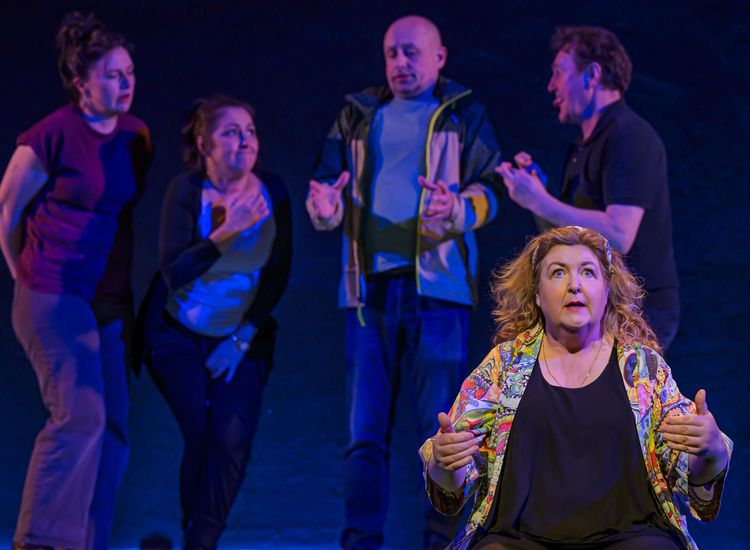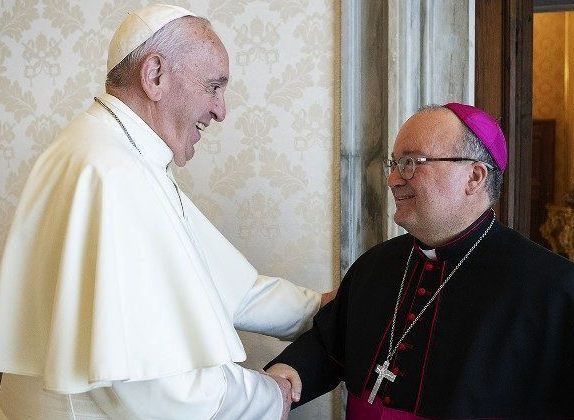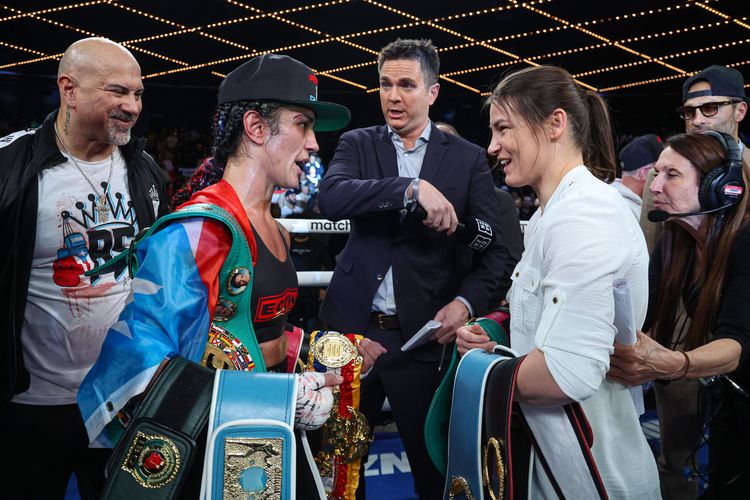James Joyce, Sylvia Beach and Adrienne Monnier at the Shakespeare and Company bookstore in Paris.
By Peter McDermott
Intrigue, betrayal, suspense and mystery.
These are some of the elements promised for a 2022 hybrid feature documentary film about the women who made “Ulysses” possible.
“Left Bank” will focus on a story that can be described as untold in that even some James Joyce enthusiasts are unaware of it, certainly not its bigger picture: which is that a group of feminists worked, very often together, towards the shared goal of bringing Joyce's work to a world audience.

Nora Barnacle.
Lead producer and co-writer Jane Applegate said “Left Bank” will be a mix of dramatic recreations, animation, archival footage and interviews with scholars.
The film, according to its website leftbankthefilm.com, will “evoke the time, place and mood of effervescent 1920s Paris as women fought to fulfill their creative and intellectual potential.”
“We put the women together in Paris,” said Applegate, of the dramatic recreations, which are to be filmed with actors in a studio in France.
At the center of this “feminist reframing of the story” are the lives of its four protagonists, who were born in the U.S., Ireland, England and France.
The part played by the American bookseller Sylvia Beach (1887-1962) is perhaps the most celebrated, and “Left Bank” is being built on a short film, “Left Bank Bookseller,” by co-writer and co-director Lisa Reznik, which, based on 10 years of research, tells in outline the story of Beach, her Paris bookstore, Shakespeare and Company, and how she published “Ulysses” when nobody else would.

Sylvia Beach.
The aim is to make “Left Bank,” first of all, as an hour-long presentation for television in time for the centenary next year of the novel’s publication, and then later as a 90-minute version for film festivals and theatrical release.
Beach, who was born in Baltimore to a Presbyterian minister and a mother whose parents had been missionaries, led an eventful life after her family settled in Paris in the early 20th century — from her role in the careers of major literary figures like Joyce and Ernest Hemingway to her internment along with other Americans by the occupying Nazis.
Much of the film’s story will revolve around Beach’s extraordinary courage and vision. She’s also the person who gets to be betrayed most often here, not least by Joyce himself, who cut her out of a deal he made with Random House in the 1930s.
The next most prominent of the four is Nora Barnacle (1884-1951), long-life partner and muse of Joyce, who was born into humble circumstances in Galway City, the daughter of a dressmaker and an illiterate baker from Connemara.
For Applegate, Nora may not have been consciously a feminist, but she certainly was in practical terms. “It was a tumultuous relationship,” the producer said of a partnership that began on June 16, 1904, and was formalized by marriage in 1931.
Despite everything, Nora, who would have preferred that the multitalented Joyce opt for a musical career, “followed him from eviction to eviction.”
Adrienne Monnier (1892-1955) was born into a Parisian family of modest means. Her father was a postal worker who was supportive of her early ambitions, most notably by handing over a settlement he received for a workplace injury; her mother had encouraged in her children an interest in reading and the arts. Adrienne, an innovator and entrepreneur, became the first woman to open a bookstore in France when just in her 20s. She was known for her connections to her business and romantic partner Beach, but grew to be an influential presence in Paris’s literary scene in her own right.

Adrienne Monnier.
Harriet Shaw Weaver (1876-1961) was the sixth of eight children born to a Cheshire doctor and his wealthy heiress wife. “She was a tomboy reading George Elliot in the tree,” Applegate said. Guilt at her mother’s family’s cotton fortune, the producer said, led the social worker Harriet to back radical, feminist and socialist causes. And she also supported progressive writers. In the case of the most famous, Joyce, it was to the tune of $250,000 over a 26-year period. When the writer’s daughter Lucia became ill with schizophrenia, it was Weaver who paid the extensive medical bills. She was often driven to near despair, though, at the profligate Joyce who would pick up the tab for his friends in Paris, with her money.
“But she kept writing the checks,” Applegate said of Harriet.

Harriet Shaw Weaver.
Filming begins on June 16, in Ireland, where interviewees will include Darina Gallagher, director of the James Joyce Center; Ann Fogerty, Professor of James Joyce Studies, University College, Dublin and Director, UCD James Joyce Research Centre; and James Harrold, Galway City Arts Officer.
Four leading U.S.-based scholars are also on board as interviewees: Fordham’s Prof. Keri Walsh, author of the “The Letters of Sylvia Beach”; Andrea Weiss, filmmaker, professor and author of “Paris Was a Woman”; Caitlin O’Keefe, author of “Sylvia Beach and Les Amies des Livres: The Forgotten Feminist Roots of the Shakespeare and Co. Lending Library”; and Harvard’s Prof. Kevin Birmingham, the author of “The Most Dangerous Book in the World.”
Birmingham says in a short recorded endorsement on www.leftbankthefilm.com that it’s a myth that one person, the writer, is responsible for a book.
“A film like ‘Left Bank’ is revising this overly simplistic history of this book,” he says of Joyce’s most famous classic. “All these women were crucial to the creation of ‘Ulysses.’ If they didn’t exist, if they weren’t supporting Joyce, it wouldn’t have happened. ‘Ulysses’ would not be the book it is today. I urge you to donate to make ‘Left Bank’ happen.”
For more on the film and the Kickstarter campaign supporting it, click here.











